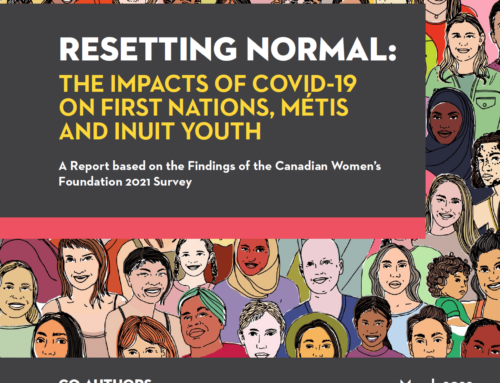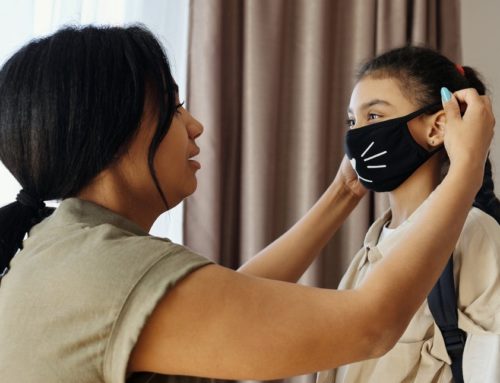“Mom, I’m boooooored! What can I do?”
In a summer clouded by COVID-19, this is a tougher question for parents and caregivers to answer. We’re looking at weeks of keeping kids healthy, happy, and active with limited or no access to camps, sports programs, and community services like pools, libraries, and playgrounds. There are other layers to this too, like screen-time skirmishes where kids and parents/caregivers have to fight for tech and Internet access and work and play space—if it’s even properly available in the first place.
This labour takes a toll, and given women’s bigger caregiving role in Canada, they feel it the most. Seven out of 10 Canadian women are feeling more anxiety, depression, fatigue and isolation because of the increase in unpaid care work during the pandemic, says an Oxfam Canada survey. And the juggling act won’t necessarily end in September because schools are still figuring out whether they’ll resume full-time in-person classes.
We can’t ignore the increased childcare burden women face during the pandemic, and here are four important reasons why:
1. It’s undoing progress on gender equality
Mothers with low or no access to summer childcare options may feel they have no choice but to either scale back or quit paid work entirely (if they haven’t already done so). Because of the gender pay gap and the fact that men tend to be the higher earners in heterosexual couples, women often sacrifice professional advancement and economic independence for family well-being. In a society that undervalues caregiving and the crucial role it plays in the economy, this means that women also lose ground in terms of workforce participation, access to leadership roles, and positions where we can influence decision-making. This is a huge deal because, ultimately, economic choice is interwoven with freedom from violence and poverty, the ability to meet your basic needs and improve your quality of life, and your capacity to avoid all kinds of risks.
2. It will impact Canada’s economic recovery
Women in Canada experienced more early job losses than men at the beginning of the pandemic and didn’t bounce back from the losses as well as men did. Applying for jobs, preparing for interviews, and taking on new work responsibilities may now be even more challenging for those who could have previously relied on online school programming to occupy their children for part of the day. The irony is that a lower proportion of women in the workforce will hurt Canada’s pandemic recovery, says Armine Yalnizyan, an economist and a fellow with the Atkinson Foundation. We know that women’s participation in paid work and their ability to earn equal pay helps drive economic growth. “There’s no recovery without a she-covery and no she-covery without childcare,” Yalnizyan said in an interview with the Toronto Star.
3. Lack of childcare supports deepens social divides
Women who are up against multiple social barriers, including poverty, single parenthood, ableist barriers, and systemic racism are especially at risk of further marginalization due to a lack of childcare in the pandemic. “Women living in poverty and ethnic and racial minorities were more likely to suffer economically because of increased unpaid care responsibilities,” says the Oxfam Canada survey. “For example, Indigenous (49%) and Black (55%) Canadians reported greater challenges due to increased house and care work caused by COVID-19 than their white peers (34%). Indigenous respondents were three times as likely as white respondents to say they have had to give up looking for paid work as a result of increased care responsibilities.”
4. Increased health issues and lack of supports
Increased levels of anxiety and depression among women may contribute to a host of other health problems and harmful coping behaviours. It may put women in a position of facing more trauma as it’s difficult to leave unhealthy or abusive relationships right now. Pandemic restrictions could mean it’s harder to find safe spaces, relevant services, and community-based support.
While a vaccine for the virus may eventually be developed, “there will be no vaccine for these mental health impacts of the COVID-19 pandemic,” points out the British Medical Journal.
As Canada turns its focus to boosting the economy, returning to school and work, and overall going “back to normal,” the Canadian Women’s Foundation is one of the voices urging Canada to “reset normal.” We need to centre gender equality, invest in affordable and accessible approaches to childcare, and blaze a new trail, using the pandemic recovery as an opportunity to achieve a better future for everyone. To this end, we’ve collaborated on a series of “Resetting Normal” reports, which provide a roadmap for doing just that. The second report–“Women, Decent Work and Canada’s Fractured Care Economy”–focuses on women’s role in care work.
Read the Resetting Normal report series.
The Foundation has launched the Tireless Together Fund to help ensure that vulnerable women and girls aren’t left behind in the COVID-19 crisis. Your contribution will help critical programs for diverse women, girls, and trans and non-binary people continue through the pandemic.
Learn more:
We explore how childcare is crucial during the COVID-19 pandemic and beyond on our new podcast. Listen on Spotify or here.
The Facts: Women and Pandemics
Women Leaders in COVID-19: Seen and Unseen
Women’s “Worry Work in the COVID-19 Pandemic
The Difficult Economic Side-Effects of COVID-19 for Women
The Gendered Impacts of Coronavirus







